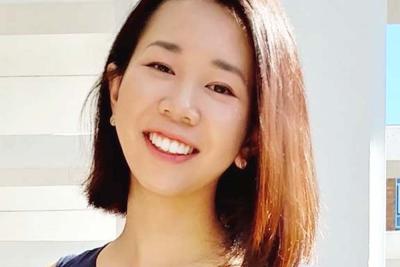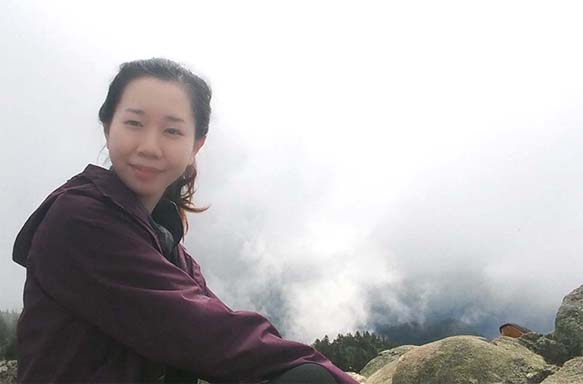Featured Student: Melanie Law
July 18, 2023

July 18, 2023

I pursued a dual degree with a Bachelor of Science in Microbiology and Immunology and a Master of Management. I graduated from my Bachelors in May 2022 and my Masters in December 2022.
I chose to enroll in co-op, because I was very interested in gaining skills and hands on knowledge that I could not gain in the classroom.
I also wanted to try different types of work environments and discover which ones suited me and my goals the best.
Throughout my 18 months, I had the good fortune of working at a variety of different positions.
My first placement was as a research assistant at Ascension Sciences, then a data curator in the Pavlidis Lab at UBC and lastly as a junior developer at PanGenomic Health Corp.
As part of team bonding, one of the companies I worked with would regularly schedule team hikes through the mountains. The views were beautiful and it was a great opportunity to get to know my co-workers outside of the workplace.

One of the achievements I had been most proud of was being able to apply my experience with data science and natural language processing to create a workflow in Python that scraped research articles and assessed how favourably the online community viewed them.
As the member of my team who was most familiar with this process, this project was assigned to me. At the time, I initially felt out of place, because my background was strongly rooted in wet lab work, as compared to my peers who all came from computationally heavy programs.
However, my ability to find my niche and contribute to my team went to show that everyone had their own strengths to bring.
Co-op helped me immensely in developing my soft and technical skills.
I have become more confident in articulating my ideas and not being afraid to put myself out there and ask questions.
I also became a lot more confident in my research and programming skills, talents that I didn’t fully realize I had before.
With each new position, there was always a lot of learning to do – and it’s completely normal for it to feel overwhelming.
An unexpected challenge for me was learning how to use a new operating system, that I had never used before. Doing so helped me become more self-reliant in performing my own troubleshooting and finding my own answers.
The co-op program has a lot of resources that students can take advantage of.
There were so many interesting job postings that I didn’t realize I had the qualifications for – and they were dream positions.
I was also able to identify which qualifications employers looked for in candidates.
For those considering co-op who are unsure, I highly recommend joining the program.
When applying for different positions focus on why you want to join that team and why you are passionate about what they do. Thinking through your motivation beforehand can really help you build a connection with recruiters during the interview. Additionally, look at interesting postings that may be outside of your field, you just might be surprised about how capable you are and how many skills transfer between fields.
My next main goal is to complete my Master of Management, which will allow me to have a background in the life sciences, computational sciences, and business. I hope to apply this skill set to the field of medicine. I am grateful that my diverse background is an asset that will help me pivot different directions and explore my passions.
We honour xwməθkwəy̓ əm (Musqueam) on whose ancestral, unceded territory UBC Vancouver is situated. UBC Science is committed to building meaningful relationships with Indigenous peoples so we can advance Reconciliation and ensure traditional ways of knowing enrich our teaching and research.
Learn more: Musqueam First Nation